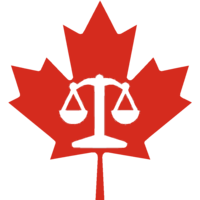Copyright law of Canada

Have you ever drawn a picture or written a story? You probably worked really hard on it and want to make sure nobody takes it and says they made it instead of you, right? That's why we have something called copyright law!
In Canada, copyright law says that when you create something like a book, a song, a movie or a picture, you automatically own the rights to it. No one else can use your work or claim it as their own without your permission. This means you can make sure people don't copy or sell your work without giving you credit or paying you money.
But there are some important things to know about copyright law in Canada. For example, if you want to use someone else's work, like a picture or a song, you have to ask them for permission first. If you use it without asking, that's called "copyright infringement" and it's against the law.
Copyright law also has a time limit. In Canada, the copyright for a piece of work generally lasts for 50 years after the creator's death. After that time, the work becomes "public domain" which means anyone can use it without asking for permission.
Another thing to remember is that copyright law doesn't just apply to things you see or hear, like movies and music. It also applies to things you might use every day, like computer software or video games. You have to follow the rules set out by the people who own those copyrights, otherwise you could get into trouble.
Overall, copyright law in Canada helps to protect the work of creative people and make sure they get the credit and money they deserve for their hard work!
In Canada, copyright law says that when you create something like a book, a song, a movie or a picture, you automatically own the rights to it. No one else can use your work or claim it as their own without your permission. This means you can make sure people don't copy or sell your work without giving you credit or paying you money.
But there are some important things to know about copyright law in Canada. For example, if you want to use someone else's work, like a picture or a song, you have to ask them for permission first. If you use it without asking, that's called "copyright infringement" and it's against the law.
Copyright law also has a time limit. In Canada, the copyright for a piece of work generally lasts for 50 years after the creator's death. After that time, the work becomes "public domain" which means anyone can use it without asking for permission.
Another thing to remember is that copyright law doesn't just apply to things you see or hear, like movies and music. It also applies to things you might use every day, like computer software or video games. You have to follow the rules set out by the people who own those copyrights, otherwise you could get into trouble.
Overall, copyright law in Canada helps to protect the work of creative people and make sure they get the credit and money they deserve for their hard work!
Related topics others have asked about:
